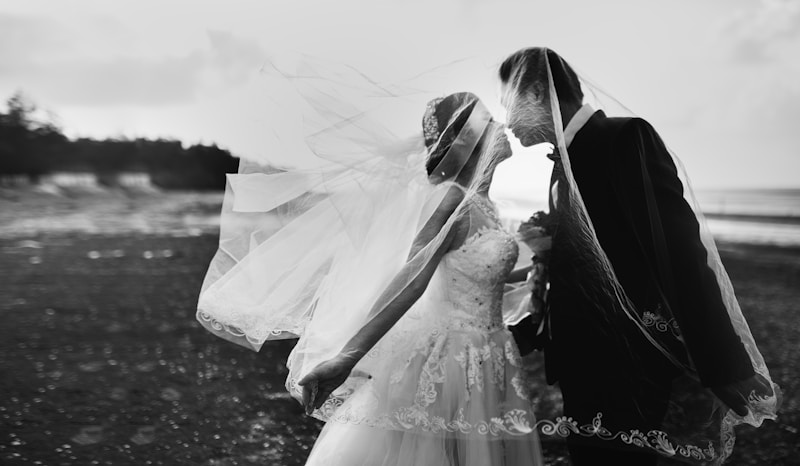Alternative Ways to Source Wedding Dresses: A Comprehensive Guide
Introduction
Choosing the perfect wedding dress is often one of the most exciting, yet challenging, parts of wedding planning. While many brides head straight to traditional bridal boutiques, there are numerous alternative ways to source wedding dresses that can provide unique options and potentially save money. In this article, we will explore various methods for sourcing wedding dresses, providing tips and insights along the way. From online marketplaces to local thrift stores, the possibilities are endless.
Why Consider Alternative Sourcing Methods?
Opting for alternative ways to source wedding dresses has several advantages. These methods not only allow you to express your unique style but can also lead to significant savings. Additionally, many brides want to make environmentally-conscious choices, and sourcing dresses through non-traditional channels can support sustainable practices by reducing waste in the bridal industry. Here’s a look at some of the most popular alternative options.
1. Online Marketplaces
The rise of e-commerce has transformed the way brides shop for wedding dresses. Websites like eBay, Etsy, and Poshmark provide platforms for individuals to sell both new and pre-owned dresses. These online marketplaces often feature a wide range of styles and price points, making it easier for brides to find something that suits their taste and budget.
Benefits of Online Marketplaces
- Diverse Selection: You can find dresses from various designers and styles, sometimes even ones that are no longer in production.
- Cost-Effective: Prices may be significantly lower than retail, especially for pre-owned dresses.
- Convenience: Shopping from home saves time and allows for comparisons.
2. Bridal Consignment Shops
Bridal consignment shops are excellent places to source wedding dresses at a fraction of the original price. These shops typically sell used gowns that are in excellent condition. Many brides choose to sell their dresses after the wedding, and consignment stores allow them to recoup some of their costs while making other brides’ dreams come true.
Finding the Right Consignment Shop
When searching for a consignment shop, consider the following:
- Research local shops with good reviews online.
- Visit multiple locations to compare selections and prices.
- Be patient; consignment shops can have fluctuating stock.
3. Thrift Stores and Charity Shops
For brides on a budget, thrift stores and charity shops can be treasure troves filled with unexpected finds. While the selection may vary widely, it’s possible to discover gently used wedding dresses at very low prices.
Tips for Thrift Shopping for Wedding Dresses
- Frequent Visits: Stock changes regularly, so visiting often can yield better results.
- Be Open-Minded: Be willing to look at dresses that may not seem like a traditional wedding gown at first.
- Alterations: Consider the potential costs of alterations when budgeting.
4. Renting a Wedding Dress
Another innovative way to source wedding dresses is through rental services. Companies like Rent the Runway allow brides to rent high-end gowns at a fraction of the purchase price. This option is particularly appealing for those who desire designer dresses but do not want to invest heavily in a gown they will only wear once.
Advantages of Renting a Wedding Dress
- Cost Savings: Renting can reduce your overall wedding expenses considerably.
- Less Commitment: Renting allows you to wear a beautiful gown without worrying about it gathering dust afterward.
- High-Quality Options: Many rental services offer access to designer labels.
5. Custom-Made Dresses by Independent Designers
Working with independent designers or seamstresses can yield a unique wedding dress tailored to your specifications. This option gives brides complete control over fabric, design, and fit, ensuring that the dress aligns perfectly with their vision.
Finding the Right Independent Designer
- Research and read reviews to find designers with excellent portfolios.
- Set a budget before consultations to ensure affordability.
- Communicate your vision clearly during consultations to achieve the desired results.
6. Vintage and Secondhand Shops
For brides who love timeless elegance, vintage shops can be a goldmine. Vintage wedding dresses often come with unique details and designs that are hard to replicate. Plus, buying secondhand is a sustainable choice that contributes positively to the environment.
Where to Find Vintage Wedding Dresses
Here are some popular platforms and locations to start your search:
| Platform/Location | Description |
| Etsy | Online marketplace with a range of vintage dresses. |
| Local Vintage Stores | Brick-and-mortar stores specializing in vintage fashion items. |
| Facebook Marketplace | A platform where users can find local sellers with vintage items. |
7. DIY Wedding Dresses
For the creative bride, making your own wedding dress might be the perfect solution. DIY wedding dresses allow for complete control over the design and can be an incredibly fulfilling endeavor. With the right materials and some sewing skills, you can craft a gown that’s genuinely one-of-a-kind.
Resources for DIY Wedding Dresses
- Pattern books specific to wedding dresses.
- Tutorials on platforms like YouTube or Pinterest.
- Local sewing classes to refine skills.
Conclusion
In conclusion, there are numerous alternative ways to source wedding dresses that cater to different preferences and budgets. From online marketplaces and consignment shops to renting or even DIY options, the choice ultimately depends on what fits your style and financial plan best. It’s essential to weigh the pros and cons of each method and remain open-minded during your search. No matter where you source your wedding dress, remember that finding the right gown is about creating the perfect memory for your special day.
As you embark on your wedding dress journey, keep in mind the following:
- Set a clear budget to avoid overspending.
- Consider your personal style and whether you want a vintage, modern, or custom look.
- Don’t forget to factor in alteration costs if sourcing a secondhand dress.
Happy dress hunting!
